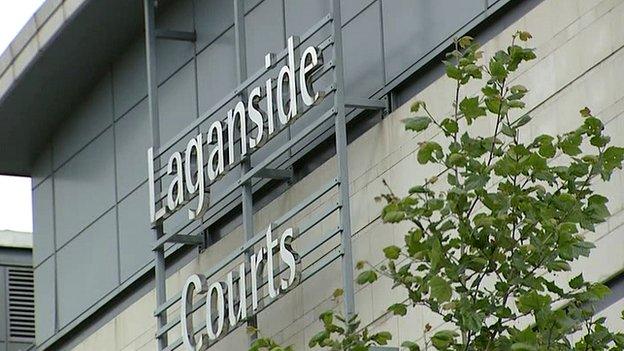Battle with education board was like 'boxing match' says mother
- Published

The mother of a child with special education needs has said the fight to get him properly assessed was like "a boxing contest".
The High Court has ruled that the Northern Eastern Education and Library Board unlawfully refused a statutory assessment of the child's needs.
The judge said the child's mother had gone through "a bruising experience" trying to get the right support.
Mr Justice Mark Horner said the NEELB had "paid lip service" to the parents.
The case involved a seven-year-old boy, known only as LC, who has speech difficulties, epilepsy, autism and motor skills problems.
His mother documented in detail his problems and asked the board for a statutory assessment. But this was refused. She pursued the case through the Children's Law Centre and was eventually granted the assessment.
However, she took the case to a judicial review in the High Court.
She said her motivation was to ensure that no other parent had to go through what she and her husband suffered. It was an ordeal that she described as being "akin to a boxing contest".
In his ruling, the judge said the mother's motivation was "to make sure that the board complies with its statutory duties towards vulnerable children such as the applicant".
"This is a laudable aim," he said.
In his ruling, he defended the right of the parents of a child with special needs to have their voices heard by the education boards.
He noted that the NEELB denied that its behaviour was driven by budget considerations and did not refuse appeals in the hope that would discourage parents from seeking assistance to which the child was lawfully entitled.
The judge said the board had acted in what they believed was a lawful and fair way.
However, he said it seemed that, in this case, the board had "paid lip service to parental involvement and that the information provided by the applicant's mother was ignored".
"To ignore their contribution as not worthy of consideration or to attach a little importance to it, is to do them a grave disservice," Mr Justice Horner said.
"In this case the board, by ignoring the representations of the applicant's parents, failed to carry out their statutory duty and thus acted unlawfully.
"It is important to stress that the board, to comply with its statutory duty in the future, must act on all the evidence it has available to it at the time and this should include any representations made by the parents."
Rachel Hogan, the lawyer with the Children's Law Centre who took the case on behalf of the parents of LC said: "The board rejected the parents' report and said there was no evidence. We have experienced this in many of the cases that we deal with, not only in this board but in others, and we are asking why.
"My question is what about those parents who accept what the board tells them and do not have the skills to challenge the decision?"
Ms Hogan said parents' voices were being "ignored and stifled".
"Parents are not second class, their views should be heard," she said.
A spokesperson for the NEELB said it was considering the judgement which had just been issued.